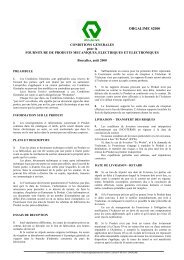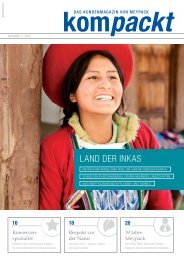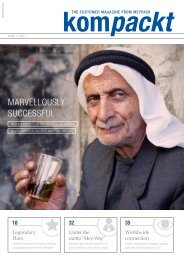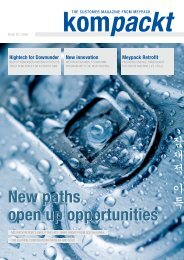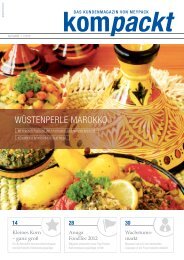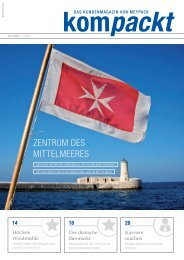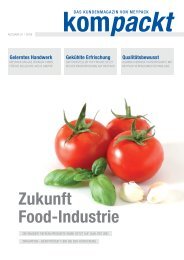Create successful ePaper yourself
Turn your PDF publications into a flip-book with our unique Google optimized e-Paper software.
Lebanon is a country <strong>of</strong> mountains, ocean and in particular, <strong>of</strong><br />
cities. Over <strong>the</strong> last 50 years, most <strong>of</strong> <strong>the</strong> 3.8 million residents <strong>of</strong><br />
Lebanon have been leaving <strong>the</strong> countryside for life in <strong>the</strong> cities,<br />
albeit around half <strong>of</strong> <strong>the</strong>m live in <strong>the</strong> capital Beirut. With 500,000 residents,<br />
Tripoli is <strong>the</strong> second largest city, followed by Zahlé with 200,000, and Sidon<br />
& Tyros toge<strong>the</strong>r with between 180,000 and 200,000 residents. The fi gures are,<br />
however, all estimates because <strong>the</strong>re has not been an <strong>of</strong>fi cial census taken<br />
since 1932.<br />
The majority <strong>of</strong> Lebanese speak Arabic. English and French are also widely<br />
spoken and are considered <strong>the</strong> key languages for communication with Europe.<br />
In Lebanon <strong>the</strong>re are 17 recognised religious communities. The largest communities<br />
are <strong>the</strong> Sunnis, Maronite and Schiites. On November 26th, 1941 <strong>the</strong><br />
French General Georges Catroux declared <strong>the</strong> independence <strong>of</strong> Lebanon under<br />
<strong>the</strong> authority <strong>of</strong> <strong>the</strong> Free French government. Elections were held in 1943 and<br />
at <strong>the</strong> end <strong>of</strong> that year, <strong>the</strong> new Lebanese government unilaterally abolished<br />
<strong>the</strong> French mandate. Directly after <strong>the</strong> independence <strong>of</strong> Lebanon, approximately<br />
20,000 men volunteered to serve under <strong>the</strong> command <strong>of</strong> <strong>the</strong> future<br />
president Fouad Chehab where <strong>the</strong>y were integrated into <strong>the</strong> Free French<br />
Army under Charles de Gaulle and contributed to <strong>the</strong> success <strong>of</strong> <strong>the</strong> Allied<br />
Forces in Bir Hakeim and near Monte Cassino in <strong>the</strong> Mediterranean <strong>the</strong>atre<br />
<strong>of</strong> war. After <strong>the</strong> Second World War, <strong>the</strong> independent Lebanon was one <strong>of</strong> <strong>the</strong><br />
founding members <strong>of</strong> <strong>the</strong> United Nations. In 1945, during <strong>the</strong> United Nations<br />
Conference on International Organisation, which laid out <strong>the</strong> foundation for<br />
<strong>the</strong> United Nations, <strong>the</strong> Lebanese delegate Charles Malik – along with Eleanor<br />
Roosevelt – played a dominating role and co-authored essential sections <strong>of</strong> <strong>the</strong>




